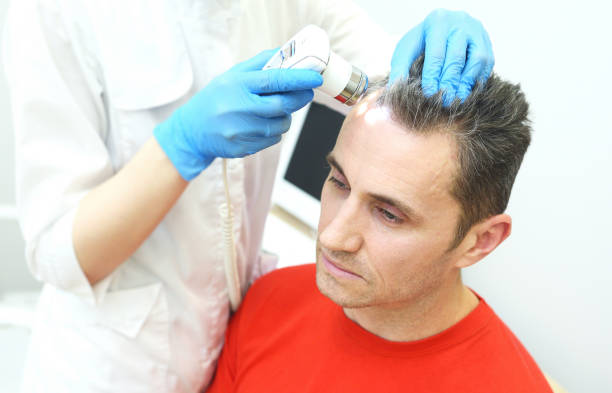Innovative Ways to Restore Hair Without Surgery
Alternative approaches for hair restoration in the United States might reveal several methods that do not require surgery. Many seek non-invasive treatments due to quicker recovery and potential financial benefits. Here are some considerations: - Professional non-surgical treatments can vary in technique and effectiveness. - Some companies offer solutions with flexible payment plans, easing financial concerns. - Look for services that focus on minimizing scarring and ensuring a natural look.

Discover Non-Surgical Hair Restoration Methods
Non-surgical hair restoration has evolved significantly in recent years, providing individuals with multiple effective alternatives to traditional surgical procedures. These methods focus on stimulating hair growth, preventing further loss, and improving overall hair health through less invasive approaches. Some of the most promising techniques include:
-
Topical treatments like minoxidil
-
Platelet-rich plasma (PRP) therapy
-
Low-level laser therapy
-
Advanced scalp micropigmentation
-
Nutritional and supplemental interventions
How to Choose a Hair Restoration Company in the US
Selecting the right hair restoration provider requires careful consideration and research. Key factors to evaluate include:
-
Professional credentials and experience
-
Treatment technology and approach
-
Patient testimonials and before-and-after evidence
-
Consultation process and personalized treatment plans
-
Reputation and client satisfaction rates
Potential clients should schedule consultations with multiple providers, ask detailed questions about their specific hair loss concerns, and request comprehensive treatment recommendations.
Exploring Advanced Non-Surgical Treatment Options
Several innovative non-surgical treatments have emerged as powerful alternatives to traditional hair transplant surgery:
Platelet-Rich Plasma (PRP) Therapy: This cutting-edge treatment uses the patient’s own blood plasma to stimulate hair follicle growth. The procedure involves extracting and concentrating platelets, which are then injected into the scalp to encourage natural hair regeneration.
Low-Level Laser Therapy (LLLT): Utilizing specialized laser devices, this treatment stimulates cellular activity and improves blood circulation in the scalp. Portable laser caps and in-clinic treatments offer convenient options for individuals seeking non-invasive hair restoration solutions.
Learn About Flexible Payment Plans for Hair Treatments
| Provider | Treatment Options | Estimated Cost Range | Payment Plans |
|---|---|---|---|
| HairMax | Laser Therapy | $500 - $3,000 | Monthly installments |
| Bosley | PRP Treatment | $1,500 - $5,000 | Financing available |
| RestoreRx | Comprehensive Hair Restoration | $2,000 - $6,000 | Credit options |
Prices, rates, or cost estimates mentioned in this article are based on the latest available information but may change over time. Independent research is advised before making financial decisions.
Understanding Treatment Effectiveness and Expectations
While non-surgical hair restoration methods offer promising results, patients should maintain realistic expectations. Success depends on various factors, including:
-
Age and overall health
-
Extent of hair loss
-
Individual response to treatments
-
Consistency in following recommended protocols
Consulting with a professional trichologist or hair restoration specialist can provide personalized insights into potential treatment outcomes.
Conclusion
Non-surgical hair restoration has transformed the approach to addressing hair loss, offering individuals multiple effective and less invasive options. By understanding available treatments, researching reputable providers, and maintaining realistic expectations, individuals can find suitable solutions to their hair restoration needs.
Disclaimer: This article is for informational purposes only and should not be considered medical advice. Please consult a qualified healthcare professional for personalized guidance and treatment.




